It’s no secret that protein is an essential nutrient for building muscle mass, supporting healthy weight management, and boosting the immune system. But protein is not only vital for bodybuilders and athletes; It should be a fundamental nutrient in any nutritious and well-balanced diet. If you want to add more protein to your diet, you may be wondering: How much protein is enough? And what are the signs that you are not eating enough protein? Fortunately we spoke with Destini Moody, RDN, CSSD, LDa registered dietitian and sports dietitian from Garage Gym Reviews, who answers these exact questions and explores 10 telltale signs you’re not eating enough protein.
Before we dig in, let’s do a quick review of high school biology class. Protein, along with carbohydrates and fats, is one of the three macronutrients the body needs for energy. Once consumed, protein is broken down into amino acids (the building blocks of muscle) that your body uses for fuel, muscle development, tissue repair, immune function, and support of various essential functions.
Providing four calories per gram, the recommended daily allowance (RDA) of protein for a sedentary adult is 0.8 grams per kilogram or 0.36 grams of protein per pound of body weight. According to the United States Department of Agriculture (USDA), this daily amount is approximately 46 grams of protein for women and 56 grams for men.
Now that we’ve established the importance of protein in your diet and how much you should consume daily, read on to discover 10 surefire signs you’re not eating enough protein, according to Moody. And below, don’t miss 16 easy ways to increase your protein intake.
It’s hard for you to gain muscle

If you find yourself stuck when it comes to gaining muscle, it could be a sign of lack of protein. Muscle growth requires more than just strength training. Research suggests that consuming between 1.6 and 2 grams of protein per kilogram of body weight is optimal for those looking to build muscle.
“Many people trying to gain muscle mass focus on bulking up by eating as many calories as possible,” says Moody. “However, you will likely become frustrated and gain fat without enough protein in those calories. You will also notice that your strength decreases or does not improve if you do not eat enough protein.”
You get sick frequently
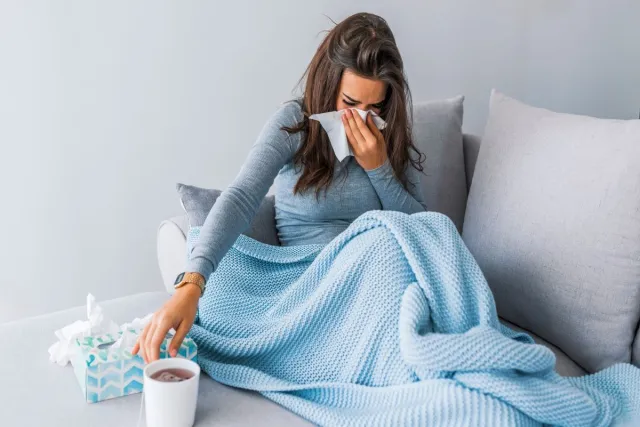

If you constantly wheeze or feel sick, it could mean that your immune system is functioning at suboptimal levels due to insufficient protein intake.
“Many people don’t know that antibodies, the immune system molecules that fight disease, are proteins,” explains Moody. “No matter which flu vaccine you received this year, your immune system may not be able to defend itself against illness without enough protein.”
You are always tired


“When you’re not eating enough protein, your body needs to get its amino acids from somewhere. So, it begins to break down your muscle mass to meet its protein needs. When you lose enough muscle, this causes weakness and you constantly feel exhausted.”, Moody says. If you get fatigued regularly, you may need to reevaluate your protein intake.
You experience mood swings
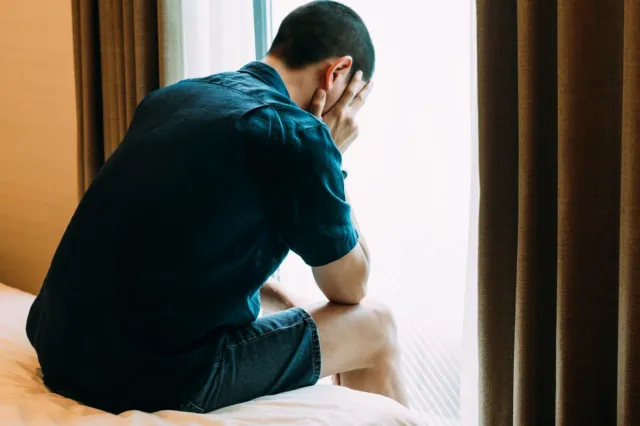

Mood swings could be a subtle indicator of a protein deficiency that affects neurotransmitter production. Neurotransmitters are chemicals that allow communication between brain cells to achieve balanced moods.
“Lack of protein can lead to eating too many carbohydrates, and those drops in blood sugar can cause you to yell at your friends and colleagues too many times for seemingly no reason. Proteins also form some neurotransmitters in the brain that control the state mood, so when your protein intake is low, your mood can follow.”
Your hair and nails are weak and brittle.
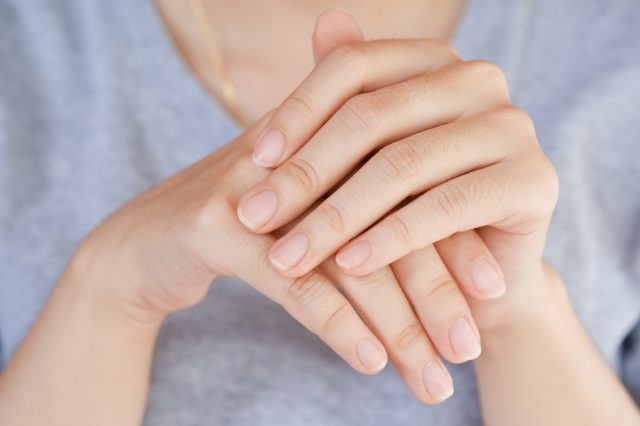

Your hair and nails are made of keratin, a structural protein that requires amino acids. When you don’t consume enough protein, your body cannot produce enough keratin for proper hair and nail growth, strength, and maintenance. Moody tells us, “Hair, skin, and nails maintain their integrity with collagen and keratin, which are proteins. Eating enough protein in your diet keeps hair shiny, nails strong, and skin smooth.”
you are always hungry
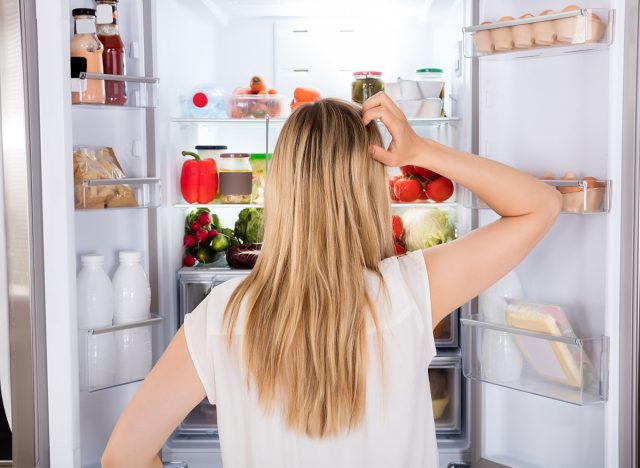

Studies show that protein is the most satiating macronutrient, meaning it keeps you fuller longer and helps reduce cravings. “Incorporating protein into most of your meals and snacks is a great strategy for feeling full throughout the day,” says Moody. “Try eating protein, fat, and carbohydrates together for a complete meal or snack.”
you have anemia
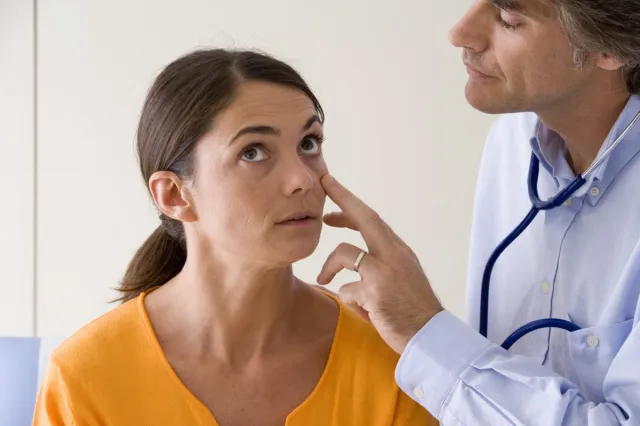

While often associated with iron, anemia can also be caused by not getting enough protein in the diet. According to the NIH, hemoglobin, crucial for oxygen transport, depends on proteins for its synthesis. “There are many forms of iron deficiency, but hypoproteinemia is a condition in which a person has very low levels of protein in their blood,” explains Moody. “Constant daily consumption of protein-rich foods can help with iron deficiency. If you are unsure what type of iron deficiency you have, it is essential to have more blood tests and consult a registered dietitian or doctor.”
You are losing muscle mass


While loss of muscle mass is a natural aging process, it can also indicate inadequate protein intake. Regular strength training requires a consistent intake of protein every day to gain muscle. Research shows that consuming 25 to 30 grams of high-quality protein spread evenly throughout the day is the ideal way to build and maintain muscle mass.
Moody says, “Eating enough protein in your diet can help maintain muscle fitness and prevent muscle wasting or loss. Regardless of a person’s goals, maintaining muscle mass should be a top priority for health and fitness.” well-being of all.”
You have a hard time losing weight
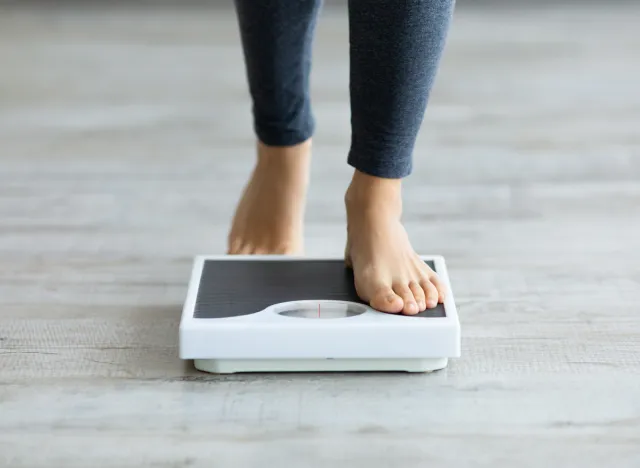

If the scale refuses to move, it could be an inadequate protein that is sabotaging your weight loss efforts. According to Harvard Medical School, proteins have a high thermic effect, meaning they require more calories to burn during digestion than carbohydrates or fats. “When some people don’t eat enough protein, they may be hungrier or less satisfied, resulting in consuming other high-calorie foods that, over time, can lead to weight gain,” Moody says.
You have weak bones
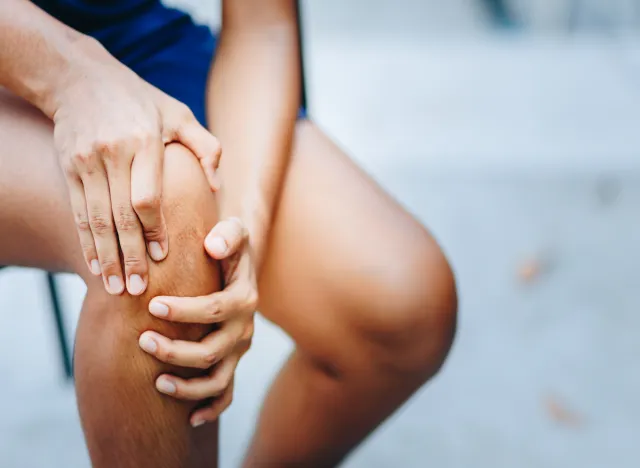

“Protein is not only important for muscle, but also for bone health,” says Moody. “Regular strength training, combined with adequate protein intake each day, will positively affect bone status.” According to the American Society for Nutrition, several studies indicate that higher protein intake can improve bone density and reduce the risk of fractures, regardless of the protein source.
